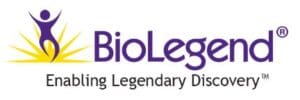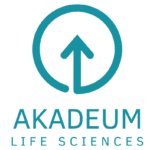We find ourselves faced with the extraordinary impact of the COVID-19 pandemic on our personal and professional lives. Many academic labs and biotech companies continue to press forward for the search of a vaccine or a treatment. While their work environment is nearly shut down, essential researchers persist with their efforts to bring a solution to the world. Critical processes in the lab must continue to function.
NanoCellect aims to support these critical researchers and their R&D workflows. We have assembled a series of resources to help you navigate COVID-19 research and continue working in the lab during these challenging times.
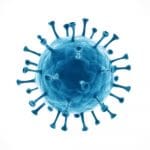
Cell Sorting and COVID-19 Research
The WOLF® benchtop cell sorter uses sterile, disposable cartridges with no cross-contamination between samples and fits inside a biosafety cabinet ensuring the safe handling of biohazard materials COVID-19 researchers can utilize the WOLF cell sorter for optimal sample preparation in single-cell “-omics”, cell isolation for culturing, or antibody discovery. Whether performing immune profiling, antibody discovery, or functional assays, the WOLF in your lab can ensure the ability to continue while core facilities are still shut down is critical.
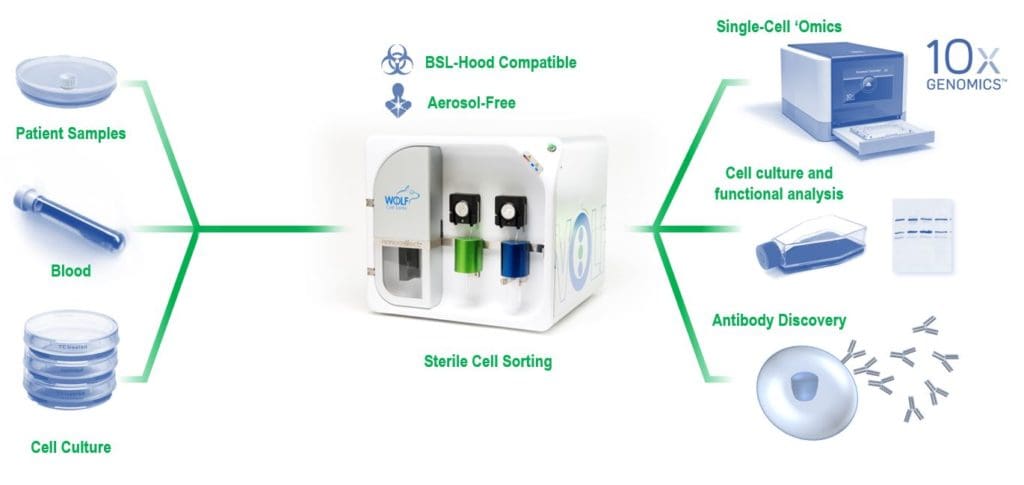
Webinars & Presentations
SARS-CoV-2, responsible for COVID-19 disease, has erupted a unifying collaborative response effort to elucidate and define protective immunity to guide development of therapeutics and vaccines.
- How dCODE™ Dextramer® technology adds a unique DNA barcode to the MHC Dextramer® reagent, allowing detection of antigen-specific T cells
- Why sample preparation for genomic applications using microfluidic-based cell sorting improves the sequencing data of downstream applications
- How combining dCODE Dextramer reagent with the 5’ immune solution from 10X Genomics can help COVID-19 research move forward

Cell Sorting for COVID-19 Research
We discuss the use of FACS in various aspects of COVID-19 research and how the availability of microfluidic-based cell sorting provides a safe and sterile solution for researcher working on COVID-19. We will review:
- Biomarker analysis of immune cells and biomarkers of COVID-19 patients
- Immune cells response characterization using single cell genomics
- Immune response profiling of COVID-19 patient
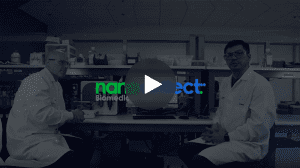
Watch the video of our founders, Jose Morachis and William Alaynick, introducing the WOLF cell sorter during these challenging times where we are all working from home
Learn about Biosafety and the benefits of using microfluidics-based cell sorting
We highlight the current challenges associated with research involving biohazard samples for cell sorting applications. We will review:
- The safety challenges for researchers
- The difficultly of using flow core facilities and shared equipment
- How bench-top microfluidic-based cell sorting offers a flexible alternative
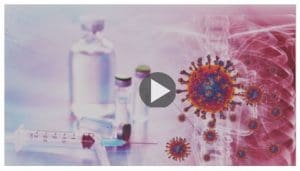
Monitoring the immune system to fight COVID-19: CD4 status, lymphopenia, and infectivity
In this webinar, explore what scientists are learning by using flow cytometry to study patients with COVID-19 in order to elucidate risk and disease severity. These experts are global leaders in cytometry and infectious disease, working on the frontlines of the COVID-19 outbreak.

The Immunology Virtual Summit brings together the Immunology community virtually to support each other, share research findings, and advance research.
From infectious disease to immune cell development, join 10x Genomics to explore the latest breakthroughs and innovations.
The ongoing coronavirus (COVID-19) outbreak has taken thousands of lives, and the number of infections is growing daily. In this webinar sponsored by 10x Genomics, Brian Fritz will discuss the utility of single cell technologies to advance infectious disease research, highlighting how the scientific community can respond to such events.
Scientific Articles
Cell Sorting
1. Cossarizza et al., 2020, SARS‐CoV‐2, the Virus that Causes COVID‐19: Cytometry and the New Challenge for Global Health
This high-level review focuses on the approaches, models and methodologies in cytometry that will play a key role in answering major questions in the pathogenesis and immune responses of SARS-CoV-2.
2. Cossarizza et al. 2019, Guidelines for the use of flow cytometry and cell sorting in immunological studies
This review features a comprehensive set of guidelines for researchers in the flow cytometry, cell sorting and immunology community. The latest techniques are summarized and detailed tables listing major immune cell types with relevant applications are also provided. Additionally, there are numerous sections specifying best practices for flow cytometry analysis.
3. ISAC COVID Guidelines, New SARS-CoV-2 Sorting Protocols Released
The International Society for the Advancement of Cytometry has released new recommended guidelines and protocols for sorting infectious samples, in light of critical SARS-CoV-2 research. Careful considerations are outlined for safe and effective management of aerosols, respiratory protection, and protocols in the event of clogs for cell sorting.
4. Han et al., 2020, Single-cell analysis of human lung epithelia reveals concomitant expression of the SARS-CoV-2 receptor ACE2 with multiple virus receptors and scavengers in alveolar type II cells
This article highlights a large single-cell analysis of 70,000+ EpCAM-positive lung epithelial cells from a range of lineages. Relative expression of various genes of interest compared to a number of diverse subsets of lung cells is reported.
Single-cell and COVID
1. Lukassen et al., 2020., SARS-CoV-2 receptor ACE2 and TMPRSS2 are primarily expressed in bronchial transient secretory cells
This article investigates ACE2 and TMPRSS2 expression levels in single cells across various cell types in lung and bronchial tissue. The resulting transiently differentiating cells show enrichment for various pathways, providing resources for further research into SARS-CoV-2 pathogenesis and infection.
2. Liao et al., 2020., The landscape of lung bronchoalveolar immune cells in COVID-19 revealed by single-cell RNA sequencing
This team characterized the lung immune microenvironment from COVID-19 patients using bronchoalveolar lavage fluid and performing single-cell RNA-seq combined with TCR-seq. This study provides the beginnings of a model of the lung microenvironment at single-cell resolution, and uncovers possible mechanisms underlying disease progression and protection.
3. Guo et al., 2020., Tocilizumab treatment in severe COVID- 19 patients attenuates the inflammatory storm incited by monocyte centric immune interactions revealed by single-cell analysis
This study profiled single-cell transcriptomes of PBMCs isolated from two severe COVID-19 patients that were treated with Tocilizumab. They report stage-specific populations of monocytes involved in the over-activated immune response, and also reveal the effectiveness of Tocilizumab treatment.
4. Ziegler et al., 2020., SARS-CoV-2 Receptor ACE2 is an Interferon-Stimulated Gene in Human Airway Epithelial Cells and Is Enriched in Specific Cell Subsets Across Tissues
This study leverages human and non-human primate (NHP) single-cell RNA-sequencing (scRNA-seq) datasets to uncover the cell subsets that may serve as cellular targets of SARS-CoV-2. They identify ACE2/TMPRSS2 co-expressing cells within type II pneumocytes, absorptive enterocytes, and nasal goblet secretory cells.
Single-cell and Infectious Disease
1. Han et al., 2020., Neonatal Rhesus Macaques Have Distinct Immune Cell Transcriptional Profiles following HIV Envelope Immunization
This paper describes single-cell RNA-seq studies showing distinct transcriptome profiles in T, B, NK cells and monocytes of neonatal compared to adult macaques. They indicate neonatal transcriptome signatures with decreased immunosuppression, providing an immune setting conducive to early-life immunization
2. Horns et al., 2020., Memory B Cell Activation, Broad Anti-influenza Antibodies, and Bystander Activation Revealed by Single-Cell Transcriptomics
This paper details the molecular and cellular features of the antibody response to influenza vaccination by integrating single-cell transcriptomics, longitudinal antibody repertoire sequencing, and antibody binding measurements. Their results highlight the coordination involved in human B cells during memory recall.
Immune Profiling
1. Zheng et al., 2020., Functional exhaustion of antiviral lymphocytes in COVID-19 patients
Zheng et al. profile NK and CD8+ T cells in COVID-19 patients, and show that NKG2A+ cytotoxic lymphocytes are functionally exhausted, indicating a potential therapeutic target.
2. Diao et al., 2020, Reduction and Functional Exhaustion of T Cells in Patients with Coronavirus Disease 2019
This study analyzed the lymphocyte profiles of 450+ COVID-19 patients and find evidence of decreased and exhausted T-cells. Diao et al. also report the specific cytokines that directly mediate the T-cell reduction from those patient samples.
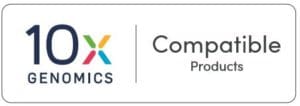
As your trusted partner, we value your well-being and understand that the scientific community is impacted by the novel coronavirus (COVID-19) outbreak.
10x Genomics’s COVID-19 response
BioLegend has committed its capabilities, resources, and immunology expertise to work that directly addresses the SARS-CoV-2 crisis.
Akadeum is proud to contribute to the global fight against the coronavirus pandemic through their community outreach and innovative cell isolation technology.
Collaborators

Scientists studying individual cells are collaborating with the Single Cell Portal team to advance COVID-19 research.
NanoCellect is proud to announce that the WOLF cell sorter has been selected by the Human Immune Monitoring Center at the Icahn School of Medicine at Mount Sinai to study COVID-19.
Human Immune Monitoring Center
Funding Sources
Biomedical Advanced Research & Development Authority (BARDA)
- 2019 Novel Coronavirus Market Research Initiative (2019-nCoV Portal)
Abstracts Due: June 30, 2020
(Gates) The Bill & Melinda Gates Foundation, Wellcome, and Mastercard
- COVID-19 Therapeutics Accelerator – news release only
Medical CBRN Defense Consortium (MCDC)
- Potential RPP, RFI or other initiatives: Dates have not been announced
Medical Technology Enterprise Consortium (MTEC)
- COVID-19 Request for Project Proposals (RPP)
Enhanced White Paper: Potential RPP – dates have not been announced
National Institute of Allergy & Infectious Diseases (NIAID)
- 2020 Omnibus Broad Agency Announcement (HHS-NIH-NIAID-BAA2020-1)
Proposals Due: April 09, 2020 - NIAID and NIGMS Urgent Competitive Revisions (PA-18-935)
Expires: February 26, 2021 - NIAID Administrative Supplements for In-Scope Work
National Science Foundation (NSF)
Dear Colleague Letter (DCL) for RAPID funding of research and projects for Coronavirus and other related issues (NSF-052) for up to $200,000 per award
- NSF encourages the research community to respond to this challenge through existing NSF funding opportunities
- Complete guidance on RAPID proposal submission
- FAQs on COVID-19 RAPID funding for Proposers and Awardees (NSF 20-053)
Vulcan-SOF
- Open call for innovative capabilities – the innovations and solutions collected will be shared by default with a wide network of Government personnel; account creation required




